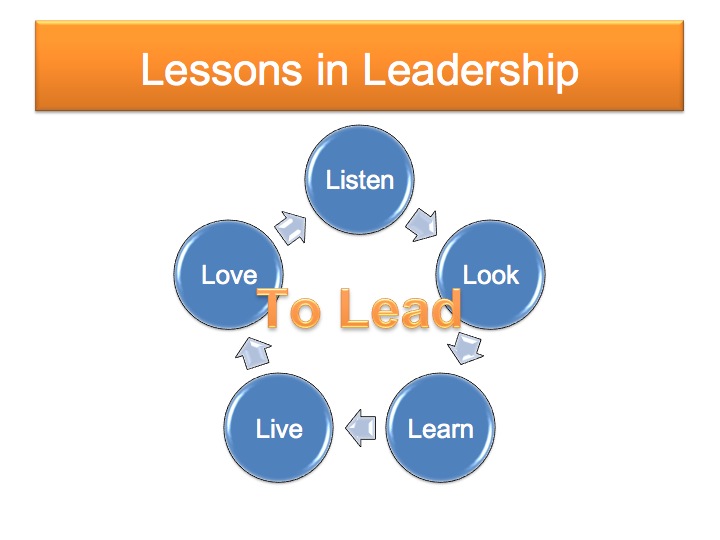I have lost count of the number of books I have read on leadership since I began my first management role at 18 years of age. Even if I didn’t exaggerate (which I can be prone to do when recounting numbers) it would have to be more than 30+ books read on leadership alone!
Being the eldest of four children and as school captain, you learn before you leave school at the very minimum how to communicate clearly and how to organize others. Yet once in the workforce and being quickly promoted into management, I did look to see if I could find a book that would help me “how to lead people of the opposite sex who are so much older than you”(clearly I was much younger then), and “how to lead people who are likely to be so much smarter than you”(clearly I was much…er….simpler then) and then later looked for books as to “how to lead people through significant change even though they are really comfy where they are today”…(well I still read on this subject)!
However, as I am sure many of you may have found from reading these types of books, most of the great leadership books provide great reinforcement of the things you either know intrinsically or are already practicing or that you see in other great leaders.
Hopefully the reason you are in a leadership position is because you have already earned it through demonstrating your success, earned through the support and power of your team behind you.
I have found the greatest value in reading books about leadership, is the time that is spent reflecting on how well I really live the things that are being suggested. I read on with the hope to find those few “aha” moments that bring great clarity to how I might be feeling about my own style of leadership or that of others. Reading can help reset your view of priorities by helping you step out of the day-to-day and getting back to doing the most important thing of all as a leader, and that is to develop the team around you to be their best, so you can collectively deliver on the goals.
Often in reading these leadership books, I have found the more complex the theory (and clever the title), the less practical it feels when it comes to professional development through daily practice. And often it is just a clever re-spin on the same basic principles of leadership.
So given that often the best lessons are those you reflect on as part of your own analysis of your behaviour, and the fact that I have been asked numerous times to write on this subject, I have chosen to write first and foremost on what I see as the most basic Lessons in Leadership.
It is pretty easy to follow – and yes it is intended to be as simple to practice and deliver the results, as it sounds:
Listen, Look, Learn, Live, Love so you can Lead !
Listen
- Listen to your team members – you will get more clues as to what is required from your own people then from anywhere else – new ideas, new technologies or developments, things that are competing for attention that may be distracting from priorities, needs, etc. By engaging your team you are helping individuals feel valued and that they can influence the business.
- Listen around you – talk on a regular basis to others, ask questions, look for common threads and themes in what is being said both internally and externally
- Listen to your customers and partners (actively listen) – they will help you develop new ideas, technologies, developments, opportunities as well as provide greater clarification of their pain and priorities as well. Even if you choose not to deliver what they are specifically asking for, see this as an opportunity for education, or a way to understand the problem so you can solve that not necessarily the symptom. And don’t forget to include listening to who you want your customer to be – what is it that they want?
- Listen to your instinct (and learn to trust it)
- Listen to yourself think so you can synthesize all of the above – focus not on exactly what is being said, but more what is all this information is telling you. Listening is not enough if you don’t take the time to think it through!
Look
- Look for smart, talented people and build a great team – assume the job is finding people where it is all about what can you learn from them. One measure on your people is if you can give them the goals or “the what” and let them focus on “the how” to deliver them, and they do! If you can’t do that, then you may not have the right people in the job.
- Look to understand and see the strengths of your team. Help others to see the strengths of all the team players. And ensure you play to these strengths on a day to day basis and in important game plays.
- Look at your team members’ body language (look to see how they are feeling) and care enough to address anything you see – happiness, satisfaction, frustration, fear, stress etc.
- Look at competitors, your market, and other markets, anything that has achieved “breakthrough” or has broken through your defences and taken you by surprise. Spend time trying to analyse why it achieved breakthrough.
- Look to geopolitical and global trends. We often need a reminder to lift our head from the transactional and get into the macro to really find what is happening in the world and how that may impact positively or negatively your business. Spend time thinking about how you can harness the global trends and differences in markets that you can see. Build the discipline to look beyond the playground you are in on a regular basis.
Learn
- Be on a constant learning path, never ever fall into the trap you have all the information you need to know already, be prepared always to learn something new
- Learn from others – what they do and what they do not do – not just what they say or choose to share
- Learn from others – what can they teach you – not just from what you observe as per previous point, but what can be shared through active engagement. If you want to learn something, then ASK!
- Learn through reading, talking, listening, observing – as much from external as internal (have others learn and share about key areas they love – how can you encourage others to self-educate, learn and share? If a topic is exposed to them in something that they already enjoy or an area they already show love and passion in – then allow them to go for it and encourage them to share or teach others including you!).
- Actively research, look for and stay open to new ideas and thoughts, trends in other industries and across the globe. Put aside what you are doing today to think about what you would do if you had a blank slate and could start from scratch.
- Learn from mistakes (yours and others)
- Learn from successes
- Share your learning!
Live
- Live your vision – talk, share, act, demonstrate, live, breathe what the company is working towards.
- The message you “live” should include defining the game you are in, explain how you the company needs to play the game, what you are working to achieve, how will it help make things better (for the world, the company, for customers, for employees, for shareholders). Why it matters! Any why it matters to you and why it should matter to them!
- Live for now (don’t avoid anything)!
- Live your values – never, ever, compromise your values. Talk about them and regularly assess (and have others assess) how well you are really living them
- Live your life (keep it in balance – no one else will do this for you)
- Live your passion – what it is that gives you energy, how is this aligned or is what you do every day
- Share your loves, your lessons, your aspirations (not just share yours – encourage and provide the forums for the sharing of others)
Love
- Love the people you work with, help them be the best they can be
- Love what you do today
- Love what you can do tomorrow – energize yourself and others by revisiting your vision, aspirations and goals
- Love your life!
- And if at any time you don’t love what you are doing then change the aspects you don’t like and do more of the things you do like!
If you can adopt these simple leadership rules, you will achieve amazing things, and you will be able to Lead. Not just manage. Not have others follow just because of a title. Not because you demand it. But because people will choose to follow you. People will follow because they will see they can be better people, because they can see a path for success, because they can see how they can impact on the world, because they have confidence they will be recognized and loved for who they are and what they offer.
If you can Listen, Look, Learn, Live, and Love, then you will automatically be Leading. You will find yourself subconsciously:
-
Leading by example
-
Leading by sharing, growing and engaging
-
Leading through strong communication
-
Leading through empowerment and acknowledging others
-
Leading because you will have a great record of team achievement!
There is no permission or need to have a defined management role to be able to practice these simple leadership rules. And leadership is simple; you just have to want to do it.
As Mahatma Gandhi said in one of my favourite quotes:
“Be the change you want to see in the world”


What are the lessons you have best learned? What else should we be doing as leaders?
Are you still President of Altium? Rumor has it you have left the company…..
Hi Don
After 5 great years at Altium, I resigned just over a week ago. There is a great team there and they will do very well. It is just time for a new challenge for me. Stay posted…
Management Leadership for Tomorrow, a non profit organization created by John Rice, helps minorities by supporting them with coaching, mentoring and seminars.
The puprose of MLT is to create true leaders that master the hard and soft skills like problem-solving, communication and business awareness.